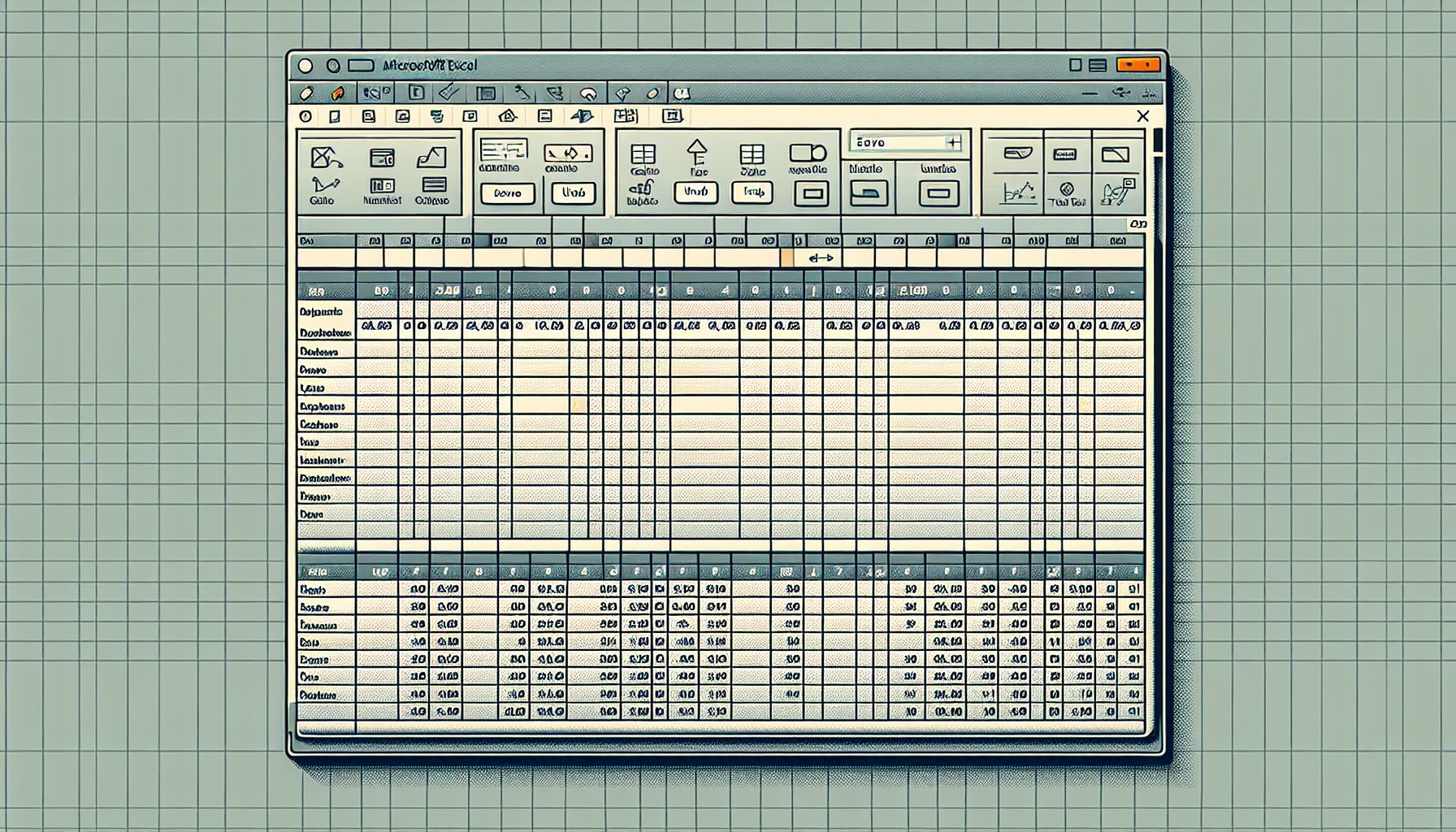“`html
Understanding Excel VBA Worksheet Commands
Excel VBA (Visual Basic for Applications) is a powerful tool that can be used to automate tasks in Excel. One of the most commonly used objects in VBA is the Worksheet. In this post, we will explore the basics of the Worksheet object, how to use it, and provide some practical examples.
What is a Worksheet in Excel VBA?
A Worksheet in Excel VBA refers to a single sheet within an Excel workbook. Each worksheet has its own properties and methods, which can be manipulated using VBA to perform various tasks such as data entry, formatting, and calculations. The Worksheet object is part of the Workbook object, and each workbook can contain multiple worksheets.
Using the Worksheet Object in VBA
To use the Worksheet object in VBA, you first need to reference it. This can be done in several ways, including by name, by index, or by using specific properties such as ActiveSheet or Sheets. Below are some common methods to reference a worksheet:
Referencing a Worksheet by Name
Referencing a worksheet by its name is one of the most straightforward methods. Here is an example:
Sub ReferenceByName()
Dim ws As Worksheet
Set ws = ThisWorkbook.Sheets("Sheet1")
ws.Range("A1").Value = "Hello, World!"
End Sub
Referencing a Worksheet by Index
Another method is to reference a worksheet by its index number. The index number is the position of the worksheet within the workbook. Here’s an example:
Sub ReferenceByIndex()
Dim ws As Worksheet
Set ws = ThisWorkbook.Sheets(1)
ws.Range("A1").Value = "Hello, World!"
End Sub
Using ActiveSheet
The ActiveSheet property refers to the currently active worksheet. This can be useful when you want to perform actions on the sheet that is currently in view:
Sub UseActiveSheet()
Dim ws As Worksheet
Set ws = ActiveSheet
ws.Range("A1").Value = "Hello, World!"
End Sub
Practical Examples
Adding a New Worksheet
To add a new worksheet to a workbook, you can use the Sheets.Add method:
Sub AddNewWorksheet()
Dim ws As Worksheet
Set ws = ThisWorkbook.Sheets.Add
ws.Name = "NewSheet"
End Sub
Looping Through All Worksheets
Sometimes, you may need to perform actions on all worksheets within a workbook. Here’s an example of how to loop through all worksheets:
Sub LoopThroughWorksheets()
Dim ws As Worksheet
For Each ws In ThisWorkbook.Sheets
ws.Range("A1").Value = "Processed"
Next ws
End Sub
Conclusion
The Worksheet object is a fundamental component of Excel VBA, and understanding how to manipulate it can greatly enhance your ability to automate tasks in Excel. Whether you are referencing worksheets by name, index, or using the ActiveSheet property, the Worksheet object offers a variety of methods and properties to suit your needs.
For more detailed tutorials on Excel VBA, check out our comprehensive VBA tutorials. If you are interested in exploring more advanced topics, the Excel Easy VBA Guide is a great resource.
“`

